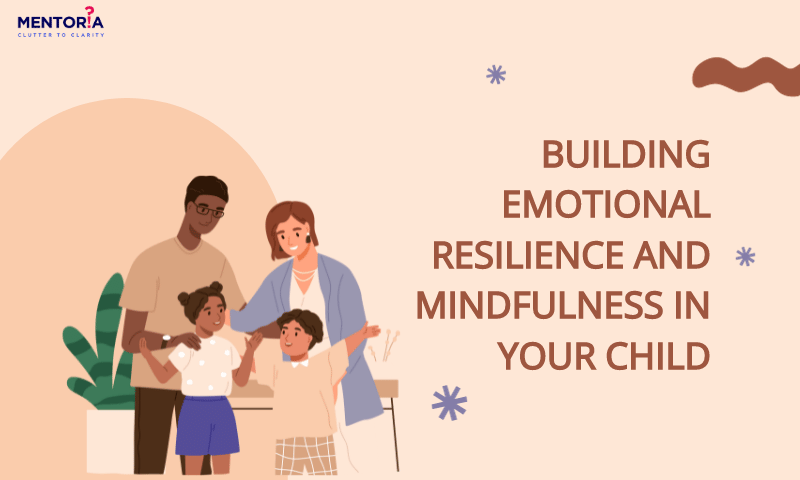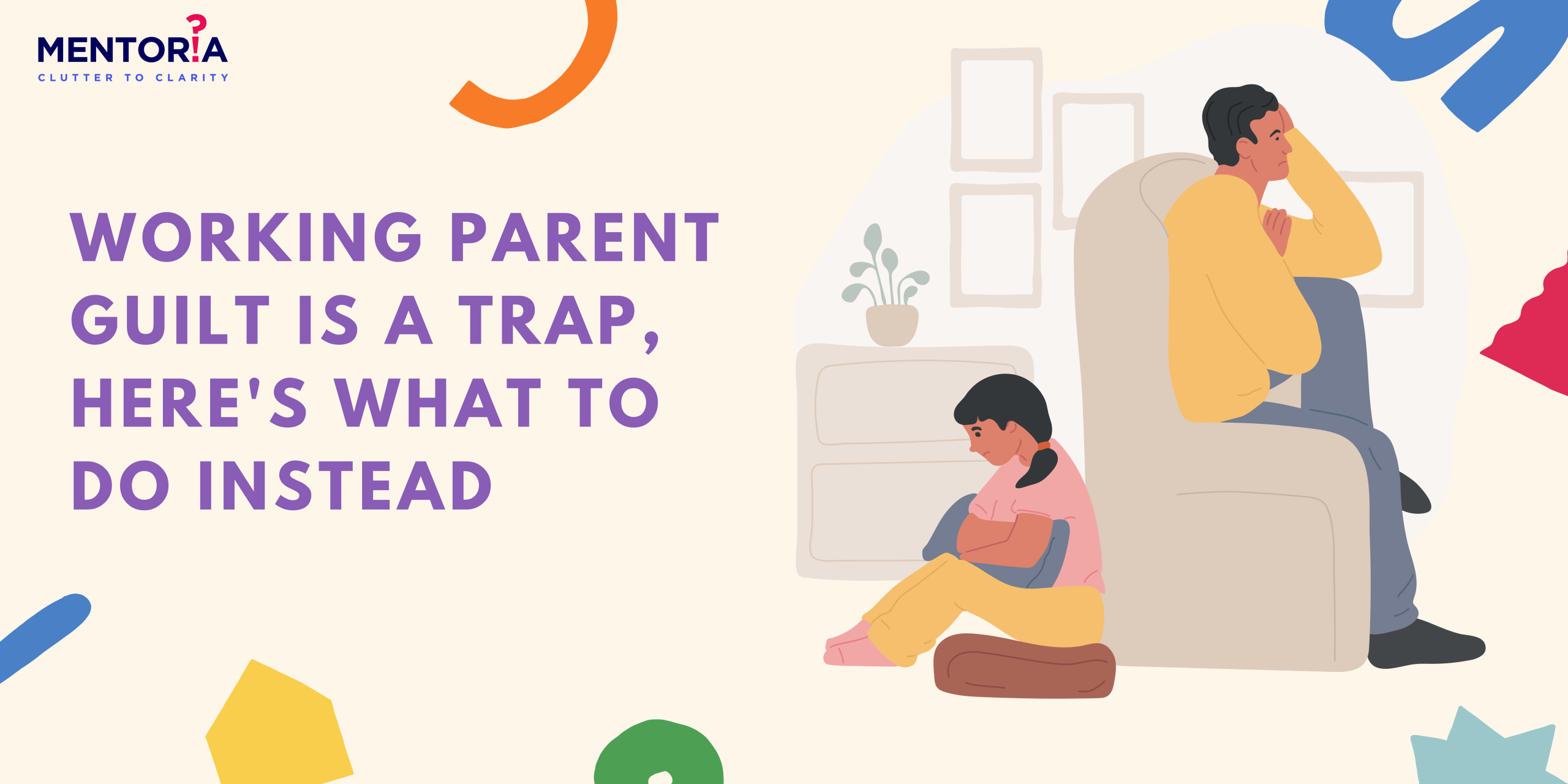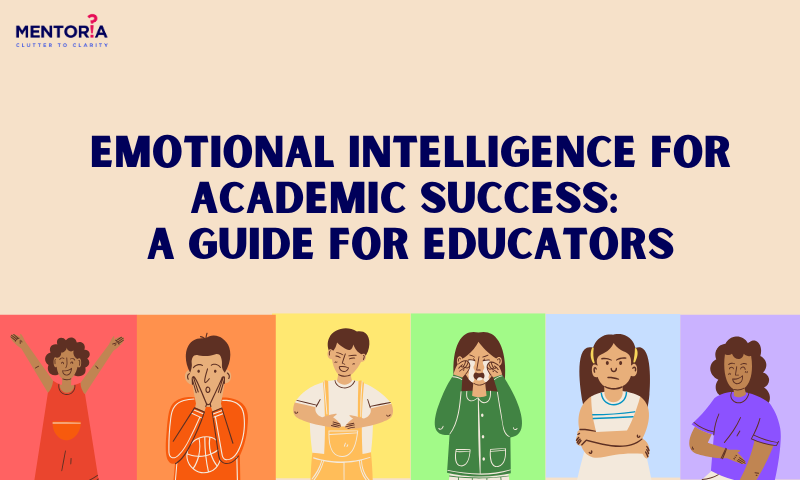Building Emotional Resilience and Mindfulness in Your Child

Jump to Section
A genuine game-changer is ensuring that our children have a healthy dosage of emotional intelligence and mindfulness. These abilities are like superpowers for our young children, enabling them to gain control over their emotions and develop into more resilient and compassionate adults.
Their “secret weapon” for navigating life’s ups and downs is emotional intelligence. It enables individuals to gain control over their emotions and make constructive use of them. Imagine how helpful that can be as they navigate all those challenging interpersonal encounters! Not to mention, practice mindfulness. Giving them this mental armour helps them maintain their composure in the present. Finding inner tranquillity and maintaining present-moment awareness are the keys. It is now our responsibility as parents to act as their guides on this trip. We are the ones who can assist them in acquiring the abilities that will prepare them for a contented and emotionally intelligent future.
Communication and Emotional Expression
Open communication is your hidden weapon if you want to assist your children in becoming emotional intelligence champions. Let them know that there will be no judgement when they open up about their feelings. It’s vital to express all of your emotions, no matter how strong or slight they may be. Make a comfortable, secure environment so they may talk about what’s on their minds and in their hearts.
And when they do, pay close attention. Give them your whole attention while you listen, and let them know that you are aware of their struggles. Help them identify such emotions by saying things like, “Hey, that’s frustration,” or “Aha, that’s joy!” Discuss constructive strategies to deal with and express those emotions to prevent them from going amok.
Teach Emotional Vocabulary and Model Emotional Regulation
Without a doubt, giving your child a superpower cape is like extending their emotional vocabulary! Right, you want them to be able to identify those emotions. Introduce them to a variety of emotions and how they appear. Create characters for those feelings, such as “Meet Mr. Happy” and “Miss Frustration.”
Play the “what if” game after that. Discuss circumstances that can cause these feelings to surface. Hey, how would you feel if you discovered a lost puppy? Would that be joyful or ecstatic? They can better understand what is happening in their hearts thanks to this exercise in handling their emotions. Now, keep in mind that children are constantly watching. So, act as their supermodel. Show them how to maintain composure in tense situations. When life surprises you, take a deep breath or even count to ten. Don’t forget to remind them that it’s okay to get angry, but how we handle it is what counts. Give them some techniques to express such feelings, like sketching or writing.
Empathy, Perspective-Taking and Mindful Practices
Empathy gives your child a superpower that makes it easier for them to comprehend and relate to other people. What then should we do? Well, the main goal is to enable them to perceive the world from another person’s perspective. Start by having some heart-to-heart discussions regarding various circumstances. Encourage them to consider what another person might be experiencing, such as happiness or sadness. Help them experience the world from someone else’s perspective.
Remember the power of narrative as well! Explore books or films that depict a wide range of experiences and lives. It’s like getting an empathy crash course. They will discover that people come in many shapes and sizes and have a wide range of emotions and life experiences. Bring on the mindfulness magic now. It’s not only for adults, either! Start with easy exercises like body scans and deep breathing. Encourage your child to concentrate on their breathing or to feel what is happening within them. They can maintain their composure and make wiser decisions thanks to this small mental exercise.
Mindful Eating, Nature Walks and Outdoor Activities
It’s important to enjoy every moment rather than merely stuffing oneself. Get your child to be present at the dinner table by teaching them to be mindful. Tell them about the wonderful flavours, colours, and textures of the cuisine. Encourage them to go slowly and imagine that they are on a culinary journey. Observe their stomachs as well; when they are full, it is time to stop.
Let’s head outside now and relax! A huge playground for mindfulness exists in nature. Take your child for a walk in the woods or engage in endless outdoor recreation. Tell them to pay attention to the chirping birds, the wind in the trees, and those beautiful flowers. It acts as a natural tranquilliser that enables individuals to be in the moment and take in everything that Mother Nature has to offer.
Gratitude Practice and Encouraging Emotional Problem-Solving
Let’s infuse your child’s everyday routine with some magic of gratitude! It’s similar to making a tiny jar of optimism. Encourage them to consider and write out what gives them a pleasant, fuzzy feeling. Simple expressions like “I’m grateful for my cosy bed” or “I’m grateful for my super-duper ice cream” could be used. They learn to see the bright side of things thanks to this practice.
Let’s now act as the ideal team for fixing issues! Be their emotional sleuths when your child’s emotions are a roller coaster. Together, come up with solutions for how to control the raging emotions. Perhaps it involves engaging in a pleasant pastime, talking with a reliable adult, or experimenting with some amazing relaxation techniques.
Limit Screen Time and Foster Connection
Allow your children to take a break from the digital world. Bring the group together for some old-fashioned face-to-face conversation, family activities, and friend play. Encourage your child to open up and express their feelings when you are with them. Real-world encounters serve as the “secret sauce” for developing close relationships and social intelligence, two essential ingredients for creating emotional intelligence.
In a nutshell, it all comes down to fostering an environment where feelings are welcomed, celebrated, and carefully handled. Your child will be prepared to face life with a heart full of awareness and a bucketful of resilience if you talk it out, teach those emotional vocabulary, practice mindfulness, and foster empathy. Keep in mind that you, the parents, are the ship’s captains.
Emotional Charging With Mentoria
Life is a rollercoaster, full of twists, turns, and loops. Now, emotional intelligence is like having that seatbelt on during the ride. It helps us stay steady and in control even when things get a bit wild. We can handle stress, pressure, and tough situations without feeling like we’re about to fly off the rails. Understanding and managing our own emotions is a big part of this. When we can identify what we’re feeling and why, we’re equipped to deal with it constructively. Similarly, children making their own academic decisions can be a potential stressor for both them and their family members. Mentoria can smoothen the process through guidance counselling that will help them handle the whole process with wisdom and grace.









